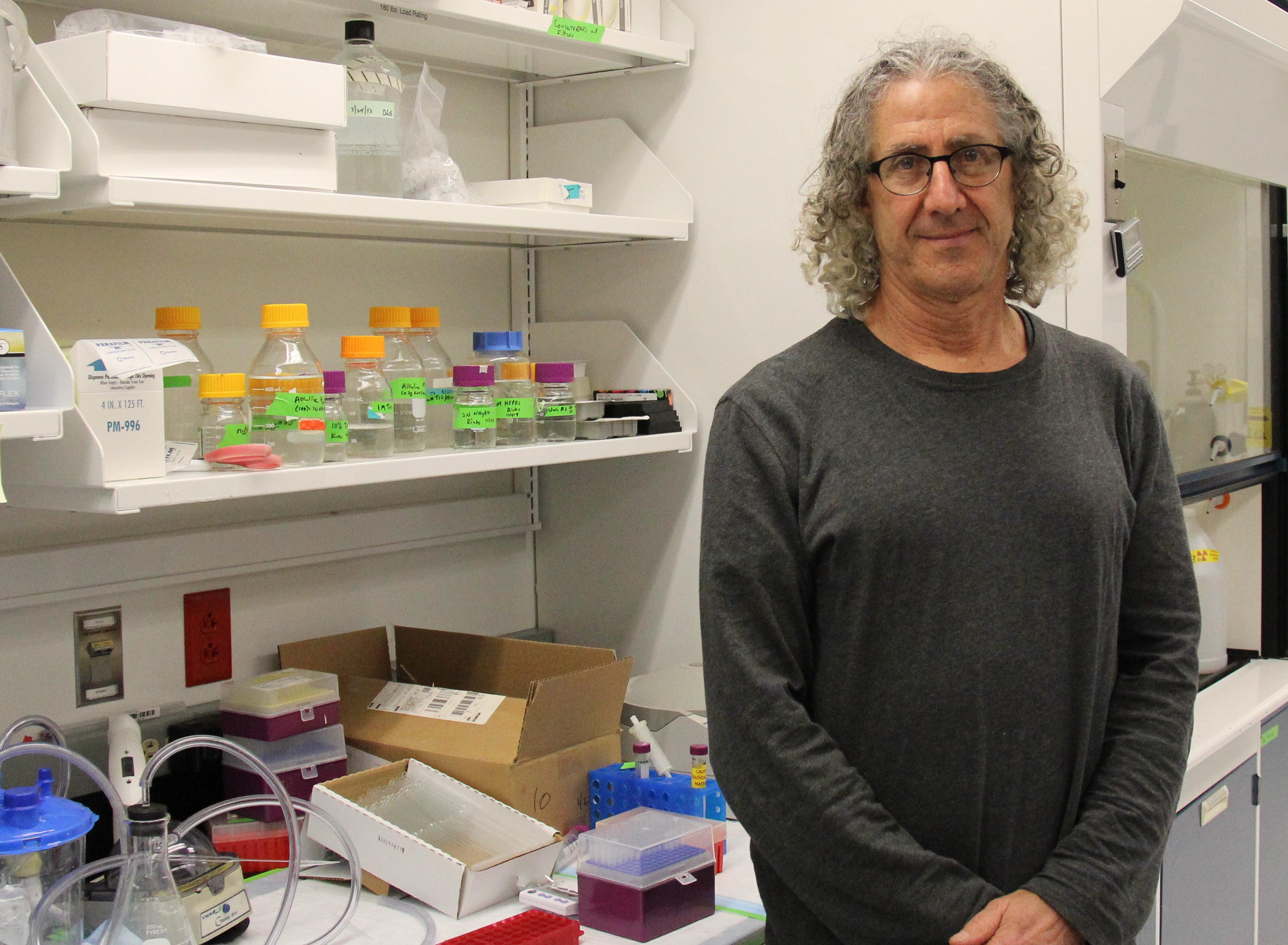Latest News
Research
Massey researcher studies the effect of lipids on the development of cancer and other diseases
May 30, 2017

Massey cancer researcher Binks Wattenberg, Ph.D., studies the role that biological molecules play in the development of cancer and other malignancies in hopes of developing tools to potentially control and inhibit growth at the cellular level for a variety of diseases. Wattenberg joined VCU Massey Cancer Center as a member of the Cancer Cell Signaling research program in 2016 and is an associate professor in biochemistry and molecular biology at the VCU School of Medicine.
His studies are centered on lipids, commonly known as fats. These biological molecules have a variety of functions in the body. Beyond their well-known roles as cellular energy sources they also serve as structural components of cell membranes and as signaling molecules both between cells and inside of cells.
Specifically, Wattenberg researches sphingolipids, a class of lipids with a unique chemical structure that can manipulate the signaling function of proteins within the cell membrane and also act as signaling molecules on their own. These signaling properties often promote cell growth; therefore, they are believed to also stimulate the development of cancerous cells.
Abundant research has tied the function of sphingolipids to cancer. Wattenberg said that previous research indicated that the signaling function of lipids is clearly altered in tumors, but much remains to be learned.
He hopes to identify a single control point in the cell that is responsible for the regulation of sphingolipids.
“Understanding how that control occurs is going to have important ramifications for the function of sphingolipids in cancer and other diseases,” Wattenberg said. “If we can control the spigot for the production of sphingolipids, we’ll have very powerful tools for controlling a variety of diseases.”
Wattenberg’s relationship to academia, biology and cancer research has deep roots reaching back to his childhood.
He grew up in Minneapolis, where both of his parents were professors at the University of Minnesota. His late father, Lee Wattenberg, is credited as a pioneer in cancer research during the 1960s and was labeled the “father of chemoprevention” by the American Association for Cancer Research.
After earning a bachelor’s degree in biology from Cornell University, Wattenberg attended Washington University in St. Louis to pursue a Ph.D. in biological chemistry. He then completed his postdoctoral fellowship at Stanford University under the tutelage of James Rothman, who was awarded a Nobel prize in 2013.
In Kalamazoo, Michigan, Wattenberg began his first true job at a small pharmaceutical company called Upjohn Company, later absorbed into Pfizer, Inc. He spent the majority of a decade working on cell membrane functions. From there, he traveled to Australia to work for a cancer research institute for six years, before moving back to the United States to take on a role at the University of Louisville’s James Graham Brown Cancer Center.
What brought Wattenberg to Massey was the desire to act in a research position where lipids were the main attraction, and he considers himself lucky to have ended up in VCU’s Department of Biochemistry and Molecular Biology.
“[Department Chair] Sarah Spiegel has created a department to understand how lipids work, especially how they signal, in a variety of disease settings, including cancer,” Wattenberg said. “It provides both a cooperative and academic atmosphere that I thought would be a great opportunity for me to expand and find a home where what I did is appreciated and accomplished with an intellectual richness that isn’t individual, but collaborative.”
Wattenberg currently holds an R01 grant for more than $1.5 million from the National Institutes of Health to study regulators of sphingolipid biosynthesis.
His research has been published in nearly 50 peer-reviewed journals, including the Journal of Bioenergetics and Biomembranes, Journal of Biological Chemistryand Journal of Lipid Research.
He has previously earned more than $3.5 million in combined grant and award funding through a variety of organizations and programs, including the Brown Cancer Center, Kentucky Lung Research Program, National Institutes of Health and the University of Louisville-Clinical and Translational Research Program.
Wattenberg serves as an associate editor for the Journal of Bioenergetics and Biomembranes and as an editorial board member for the Journal of Biological Chemistry. He is also a member of the American Society for Biochemistry and Molecular Biology (ASBMB) and is on the steering committee of the Lipid Research Division of ASBMB.
Wattenberg, who lives in Richmond’s North Side neighborhood with his wife, said he is fond of Richmond for its racial diversity.
“There’s a spirit of optimism about how a racially diverse city can be a success, and I think Richmond can sort of be a beacon for the rest of the country,” Wattenberg said.
In addition, he enjoys partaking in the city’s wealth of food and beverages, visiting the Virginia Museum of Fine Arts and running along the various banks of the James River.
Written by: Blake Belden
Related News
Research
“We’re aiming for a cure.” Massey and VIMM researchers achieve potential breakthrough in brain cancer treatmentJun 24, 2025
Research
Massey researchers discover new genetic target that could shape the future of liver cancer treatmentJun 23, 2025
Research
Virginia health leaders emphasize community impact, collaboration at Virginia Public Health Summit on CancerJun 10, 2025

Get access to new, innovative care
Treatments in clinical trials may be more effective or have fewer side effects than the treatments that are currently available. With more than 200 studies for multiple types of cancers and cancer prevention, Massey supports a wide array of clinical trials.

Find a provider
Massey supports hundreds of top cancer specialists serving the needs of our patients. Massey’s medical team provides a wealth of expertise in cancer diagnosis, treatment, prevention and symptom management.
